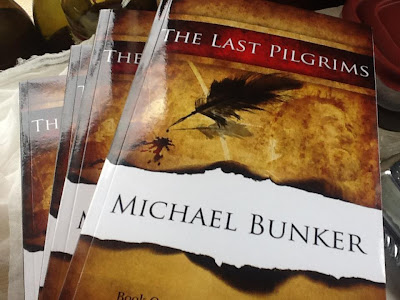Dateline: 16 February 2012
(Special Report)
Those of you who are regular readers here may recall last year’s February blogazine post in which I reviewed Michael Bunker’s about-to-be-published book, Surviving Off Off Grid. In short, I liked that book very much because it was a contra mundum manifesto that offered some of the most wise and practical information you’ll find for preparing to deal with the collapse of industrial civilization. I’m not speaking here of economic collapse (though that is bound to be part of the big picture), I mean the collapse of the very underpinnings of our current modern world system, which is dependent on electricity (the grid) and cheap, plentiful crude oil.
Anyone with a clear and humble understanding of world history, can see that our “advanced” world system has become so interconnected, so interdependent, and so morally bankrupt, that collapse is inevitable. Complexity always leads to vulnerability, and hyper-complexity like we now have equates to hyper-vulnerability.
When the collapse happens, our centralized energy distribution systems, centralized production systems, and just-in-time supply systems will no longer provide for the millions of people who depend on those systems. We will revert to the decentralized “default setting,” which is localized agrarian culture. Life for those who can quickly adapt will be much more like it was before the industrial aberration emerged for its historically short season of time.
How civilization-as-we-have-known-it will eventually unravel and exactly how life will be in the aftermath is anybody’s guess. There have been a lot of Hollywood movies based on apocalyptic and post-apocalyptic scenarios. I don’t usually watch such movies. And, likewise, I don’t usually read post-apocalyptic novels, but I have made an exception by reading Michael Bunker’s newest book, The Last Pilgrims.
Frankly, I would never have even considered reading The Last Pilgrims were it written by anyone else. But I’ll read anything written by Michael Bunker because his worldview is profoundly Biblical and agrarian. That’s a rare combination these days. Precious few people write as well and as consistently from that perspective.
I won’t go into detail about the story line except to say that it takes place in the wilds of Central Texas twenty years after the collapse of industrialized civilization. It involves a pacifist agrarian community that is facing an attack from the armies of the King of Aztlan.
While I’m not qualified to compare The Last Pilgrims to any other post-apocalyptic novel, and I don’t read enough other novels to rate it like somebody who does read a lot of novels, I can tell you, very simply, that the story drew me in and it didn’t disappoint me. There is a lot of action, and intrigue, and twists and turns to to the tale. The characters are interesting and, in some cases, very endearing.
All the great themes that you want in a good book are in The Last Pilgrims—love, honor, duty, courage, self-sacrifice. There is violence and some brutality (this is a postapocylyptic novel, after all) but it is “within bounds,” as is the language. And the love between men and women is expressed without sex.
So, yes, I liked this book. I was, in fact, a little surprised at how well I liked it. And this is how good I liked it.... when I reached the last page, I wanted to read more (fortunately, there will be a next book in the saga).
Now, don’t get me wrong... Michael Bunker’s writing is not on par with great novelists like (fill in the name of a great novelist here), but the man has written a downright good story. And if you’re in the mood for a good story, I really do think you'll enjoy The Last Pilgrims.
=======
P.S. The Last Pilgrims is being officially launched with a “book bomb” on February 24th. So please wait until that day to buy a copy. And here is the Amazon.com link where you can buy your copy: The Last Pilgrims
=====
For more details, check out the book's web site: The Last Pilgrims Web Site
=====

























































































































2 comments:
Thanks for the tip Herrick. I've read a couple of your book suggestions over the last three years so last night I downloaded the kindle edition. I rarely read this genre of book but after the first two chapters I'm finding it very engaging.
Regards,
Muns
I sure hope that commercial electricity stays on, because if it doesn't, not will the society collapse obviously, but what will happen to the 104 + or - nuclear power plants we have? They will go into meltdown. Talk about poisoning our air, soil, plant life, and bodies. It will be far worse than people will imagine.
Post a Comment